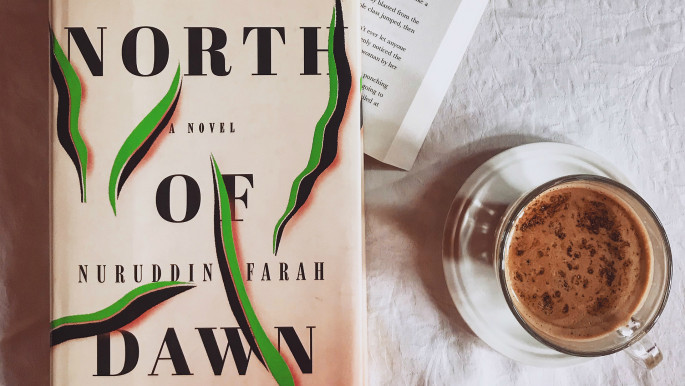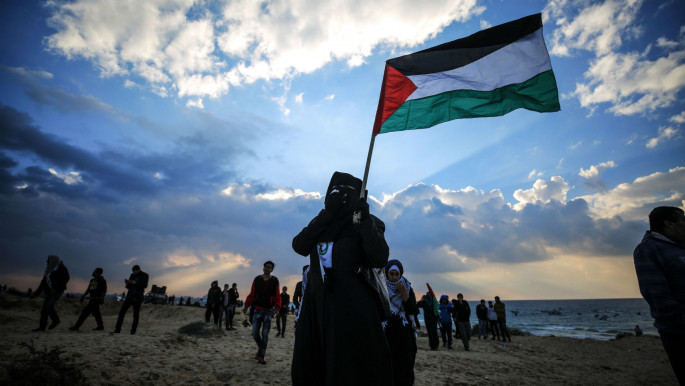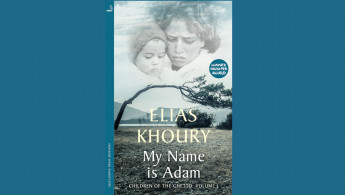My Name is Adam: Tribulations of an unfinished story
No matter the veneer one strives to don as part of the journey moving forward, there is no forgetting. Khoury's novel commences with a backdrop of events against which the Lydda narratives unfold. The narrator is introduced to Adam Dannoun who is presented as an Israeli to the readers. Yet there is an instant doubt about his real identity, which is revealed later when the man perishes in a fire and his notebooks, still intact, are given to the author by a mutual acquaintance.
From the beginning, the reader is exposed to the tribulations of an unfinished story. The notebooks themselves are incomplete and employ a variety of writing styles from literary to academic.
Yet the author's decision to explore the Lydda massacres through fiction requires additional rigour. To write about the Nakba in literary prose also necessitates a story that is supplemented by research and facts. Hence the various references throughout the book to academic and non-fiction texts which substantiate Adam Dannoun's story.
 |
Khoury's novel commences with a backdrop of events against which the Lydda narratives unfold |  |
 |
|
| Read more from The New Arab's Book Club: The emotional debris of a suicide attack: North of Dawn tells a rare story |
The absence of references in this fictional narrative is also important to make up for the identity crisis suffered by Adam, who was an orphaned baby when Zionist forces massacred and occupied Lydda. It is only in his later years that he discovers the truth regarding his early years, as well as the absence of blood relatives. Revisiting and narrating Lydda's historical memory required Adam to venture into his remembrances, as well as speaking to other Palestinians in order to fill in gaps of this period in Palestinian history.
Two main narratives emerge. One is that of Adam's identity. What the notebooks reveal is not just Adam's story, but Adam in relation to the horror and uncertainties unfolding as Lydda's remaining inhabitants are forced into a small area of the village, recreating the "ghetto".
Ma'moun, a blind man and one of the influential figures in Adam's life, is swift to point out the Zionist impositions upon the Lydda villagers. He says, "These people know nothing. They think they're in Europe. They've come and they've brought the ghetto with them so they can put us in it."
 |
The narrator is introduced to Adam Dannoun who is presented as an Israeli to the readers. Yet there is an instant doubt about his real identity |  |
Adam's displacement from his identity happens on several levels. His origins are unknown and the absence of a father figure compels him to conjure three possibilities of who his father might have been. On a personal level, the questions linger throughout the book and remain unresolved, thus validating the concept of an unfinished story.
Secondly, the trauma as a result of the Nakba prompts Adam into inventing identities as a mechanism for survival. For the Palestinian survivors, the Nakba cannot be cloistered within a historical timeframe. It also plays into the unfinished narrative due to ongoing displacement and, as a result, perpetual trauma.
While Adam, having later left the ghetto, relies upon different identities to survive, other villagers who lived the trauma employ different survival techniques. Some resort to silence, thus suffocating their testimony until faced with the inevitable return to memory.
Adam's meeting with Murad, another Lydda inhabitant who was just a boy when the massacres happened, is also prone to silence. We are told, "Murad doesn't like to talk about it, but at Lydda, the ones who left drank the cup of humiliation while those who stayed behind drank a cup of poison."
The Zionist massacres at Lydda brought the villagers face to face with disfiguration. Palestinians were forced to clear the streets from the dead bodies strewn everywhere, prompting those still alive to ponder the fine line between life and death. "We were unable to recognise people: they were all wearing such similar masks that I could no longer tell whether death is a mask or our faces are masks for death."
 |
Palestinians were forced to clear the streets from the dead bodies strewn everywhere, prompting those still alive to ponder the fine line between life and death |  |
 |
|
| Read also: A fragmented Palestinian resistance |
Towards the end of the book, Adam is told, "Telling is meaningless. My valued friend, you have to realise that at Lydda all telling came to an end." The Zionist massacres and the orders that followed ruptured Palestine into abnormal living, where no explanation was given for being robbed of land, or being forbidden to weep when burying victims. It is little wonder that telling is described as meaningless – the disconnection between life and emotion forced by the Zionist paramilitaries wrought a division between language and expression. The people's history and remembrance became an implosion.
Khoury's writing, detailed and intricate, also hints at barely having scraped the surface in terms of Adam's memory. "The ghetto's stories have no end, and if I were to keep digging away at the memories of others to reconstitute my own forgotten memory, I'd have to write thousands of pages, which I am incapable of doing."
Yet, as long as there is a receptive audience, Adam Dannoun's story will thrive and the author bears the responsibility of taking it to completion, embroiled as it is within a history that has strived against obliteration and rests within memory to safeguard itself.
Order your copy of My Name is Adam: Children of the Ghetto Volume I here
Ramona Wadi is an independent researcher, freelance journalist, book reviewer and blogger specialising in the struggle for memory in Chile and Palestine, colonial violence and the manipulation of international law.
Follow her on Twitter: @walzerscent




